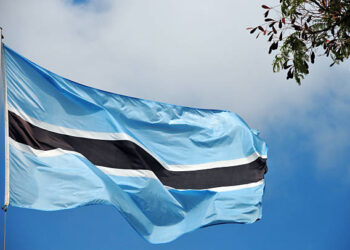The Himba live in the northern part of Namibia and number around 50 000. Traditionally, they were one of the nomadic tribes of Africa. The primary language of the Himba is OtjiHimba. The Himba people are part of a tribe that is closely related to the Herero, a Bantu ethnic group. Once part of the Herero tribe, the Himba separated themselves from the tribe at the end of the 19th century.
The OvaHimba are semi-nomadic as they have base homesteads where crops are cultivated, but may have to move within the year depending on rainfall and where there is access to water. Despite a history fraught with political and environmental disasters, the Himba people managed to survive. The people of the Himba tribe suffered with gorilla warfare, droughts, and German invasion in the area. The bovine epidemic, which killed the majority of their livestock, also forced the Himba to search elsewhere. For grazing grounds for goats, cattle, sheep, and to occupy new lands.
They live remarkably traditional lives with little influence from modern living. This may be due to the harsh environment in which the tribe lives. Their cone shaped houses are made of mud, cow dung and mopane trees to withstand the extremes of temperature in their native lands. The tribe’s main food is porridge, made from either maize or mahangu flour. They also prefer milk, eggs, cornmeal, and on rare occasions, meat.
The tribe employs a system mainly based on clans. Members belong to both their father’s and their mother’s clans. Traditionally, the eldest male is the head of a family. Every family has its own ancestral fire, which is attended to by the fire-keeper every seven to eight days in order to communicate with Mukuru and the ancestors on behalf of the family.
Despite the fact that a majority of OvaHimba live a distinct cultural lifestyle in their remote rural environment and homesteads, they are socially dynamic, and not all are isolated from the trends of local urban cultures. The OvaHimba coexist and interact with members of their country’s other ethnic groups and the social trends of urban townsfolk. This is especially true of those in proximity to the Kunene Region capital of Opuwo, who travel frequently to shop at the local town supermarkets for the convenience of commercial consumer products, market food produce and to acquire health care.



























































